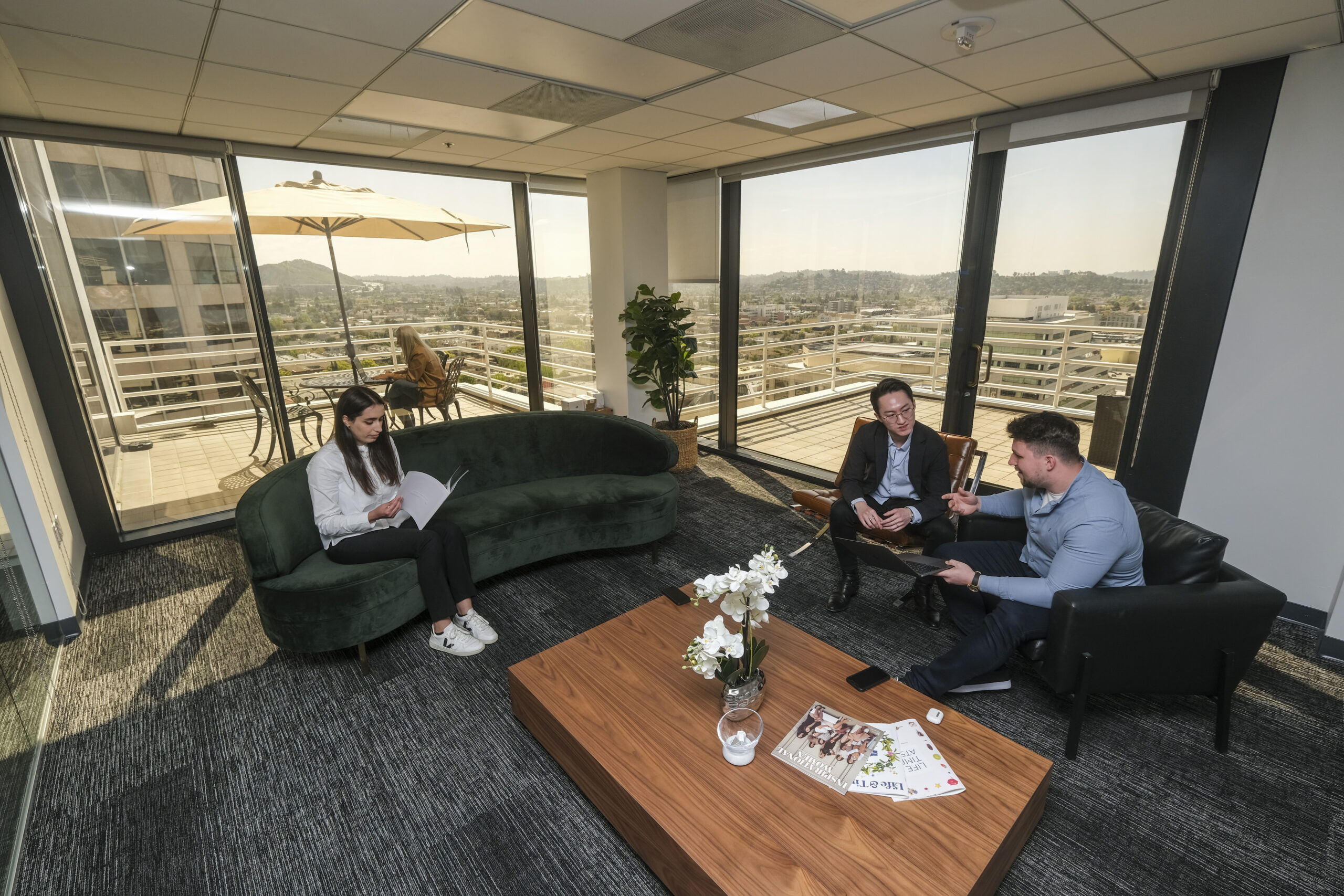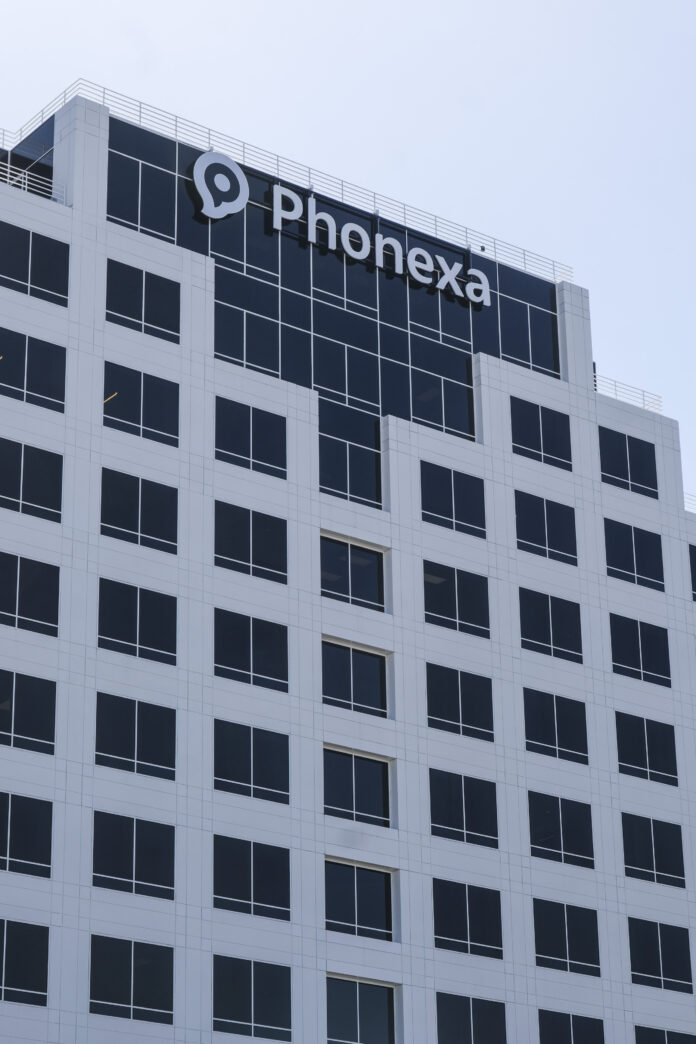Lilit Davtyan said that Phonexa Holdings thrives on chaos, which it has seen in the last few years. As the marketing automation platform’s chief executive, she said that the last year has been full of growth at a level that not all tech companies can match.
“We have a lot of clients on (our platform) but at the same time we’re expanding into new industries,” Davtyan said. “So we’re kind of playing this startup but successful company mode, and everybody’s all hands on deck.”
Glendale-based Phonexa, which was founded in 2016, calls itself an all-in-one suite for marketing automation. It allows companies to track the sources of traffic coming in and monitor their consumer interaction patterns in order to maximize marketing and communication efforts. Phonexa owns and operates MailCon, an email and omnichannel marketing convention that takes place annually in Las Vegas. MailCon was most recently held April 17-19.
And at a time when many tech companies are reducing their workforce or office space, Phonexa has accelerated its growth. The company has doubled its employee count since 2020 and now has 60 employees in its Glendale office. It also recently reaffirmed its commitment to its Glendale presence by adding more than 18,000 square feet of office space, bringing its total to 42,000 square feet across the top three floors of its current building. In addition to its headquarters office space in Glendale, Phonexa has related business entities in the United Kingdom and Ukraine and said it recently started expansion plans into Canada to meet market demand.
Davtyan said that its customers generally have a high level of customer demand. Phonexa originally specialized with companies in the lending sector but has branched out to industries such as legal and home services. Businesses in the auto insurance, life insurance and education sectors have flocked to Phonexa in increasing numbers in the last year.
Its business is unique, Davtyan said, because of the large variety of marketing tracking platforms that it offers in one place. It has eight different services, which includes an accounting system for businesses to automatically invoice the companies they are buying or selling traffic with and a click tracking platform to identify how consumers are coming to access that business’ website. The only other way a business could have all these resources, she said, would be by hiring several different marketing vendors.
“Not a lot of companies out there do give you one suite where everything is properly integrated,” Davtyan said. “(In addition), we’ve adopted a very concierge style of service. No matter how big we get, we don’t treat the smaller companies (any differently).”
Phonexa’s services are offered on a subscription basis. There are three separate tiers, or suites, based on how much access to these services a business wants. The Lite suite is $100 per month with no setup fee, the Premium suite is $500 per month with a $1,000 setup fee and the higher-level Enterprise suite is custom priced.
Each suite provides access to all eight of Phonexa’s marketing automation services, but higher tiers have higher usage capacities.
The company’s revenue comes from the subscription and setup costs as well as from its usage charges: for example, the Lite suite charges 30 cents per 1,000 clicks for its click tracking platform and 20 cents per 1,000 emails for its email and SMS marketing platform. Clients are only charged for the services they use. Davtyan said its client base increased during and after the pandemic as businesses looked to cut costs by making sure its marketing efforts were as efficient and productive as possible.
“One of the best ways to (cut costs) is to make sure that your marketing is very targeted, (customers) are actually converting and you’re not wasting money,” Davtyan said.
Growth and hiring

Business has picked up since the pandemic and Davtyan said that, unlike many other tech companies right now, Phonexa has been hiring consistently over the last couple of years. As other tech companies, including Meta and Amazon, have announced large layoffs in recent quarters, Phonexa has doubled its workforce size since the start of the pandemic from about 80 to over 200. Davtyan said that in 2020 alone, it brought on 60 new employees.
Davtyan said Phonexa looks to hire employees who are open to going into a company and treating it “like a startup with a big profit potential.” Employees in different departments at Phonexa work with companies across a variety of sectors to expose them to how different markets work.
“I think that’s been a big turning point, exposing our employees to all parts of the business that way and getting them involved,” Davtyan said. “It’s built a really nice camaraderie across the company.”
Phonexa and its entity businesses generate about $200 million in revenue annually. It is self-funded and has no outside investors.
Tech businesses in Glendale

Phonexa is not the only company with its pulse rooted in Glendale. Other prominent Glendale-based tech companies include ServiceTitan and Britive. The city has seen its tech business community grow over recent years which it has fostered with connections to the annual Glendale Tech Week, a festival that hosts and promotes local tech companies. Soua Vang, Glendale’s deputy director of community and economic development, said that the city works closely with Phonexa.
“(Phonexa) is highly invested in seeing the success of the tech ecosystem in the City of Glendale and have been a huge part of Glendale Tech Week for several years now,” Vang said.
Glendale also provides a $1 million fund through the state for two tech accelerator programs: Hero House, a startup hub owned by venture capital firm SmartGateVC, and KidsX, an incubator for tech startups in the pediatric healthcare sphere.
The city is an optimal location for businesses due to its office space prices, which cost substantially less than those in the Silicon Beach area. According to Jones Lang LaSalle Inc., asking rent for class A office spaces in Glendale averaged $3.25 a square foot in the first quarter of 2023. By contrast, asking rent on the Westside, where many tech companies are based, averaged $5.59 a square foot.
“Tech is really booming here,” Davtyan said. “There were a couple of tech companies (when we started), now there’s a lot more. We’ve been really lucky hiring some really great talent here locally as well. So those are some of the main reasons why we are in Glendale.”
